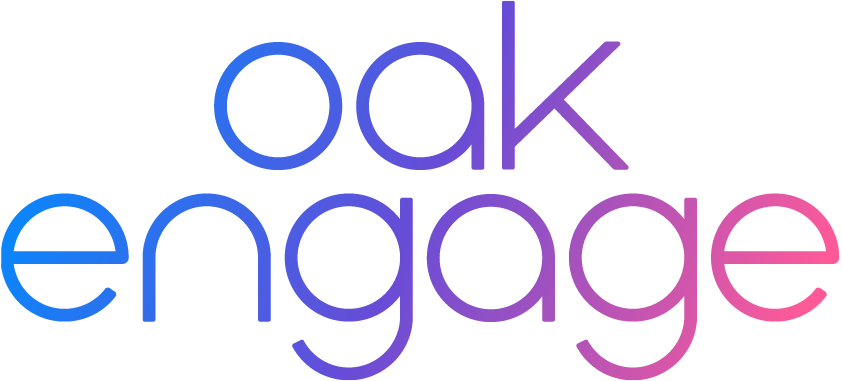Business connectivity & the ability to connect employees has never been quite as important, or even as topical as it is now. In today's unpredictable climate, however, we've been given a unique opportunity to reflect on business connectivity and what it means to us, as well as the world we live in.
Whilst it may strike many of us as a fairly modern concept, deep-rooted in the midst of all the technological advancement throughout the 21st century, connectivity is actually a very ancient sentiment. Even before language was as formal and as all-encompassing as it is today, people have always found ways of staying connected.
Let’s use cave paintings as an example. They may seem, on a superficial level, nothing more than crude, primitive decorations, courtesy of some far-gone, ancient ancestors. In actual fact, cave paintings proved to be an effective means for ancient civilisations to share their stories and keep each other in the loop all over the world. Connectivity is more than the act of being able to physically speak to one another, it’s how we communicate with the world around us on a much more holistic level.
Cave paintings, whilst as seemingly non-important as they may be, are a direct example of this. They, as many other things would come to be, were the very first inklings of the importance that connectivity and all its different characterisations would someday come to bear.
Since then, connectivity in business has evolved at a rapid pace. No longer are we plastering messages across cave walls in the hope of relaying important messages to one another (for the most part). Now, connectivity is a part of our everyday lives in more ways than we may care to imagine. We are always connected. Be it through our phones, laptops or otherwise, we're never anything more than a click or button away from staying in touch with the people around us. Connecting employees isn't all that different.
An Introduction to Business Connectivity
In the world of business, understanding how to connect employees is becoming an increasingly important premise. With the rise in the number of deskless workers and non-traditional work set-ups, connectivity has evolved (for most) as a necessity. In fact, according to Forbes, 60% of executives are certain that connected technology will play a starring role in their company’s digital strategy and will directly impact their ability to engage and connect employees.
It’s obvious that in the coming years then, the ability to connect employees will play a massive part in the overarching business goals of companies all over the world. Business connectivity is starting to be taken seriously, and for good reason. To connect staff is to connect with success.
After all, better business connectivity and more efficient communication have strong ties with increased productivity and overall company alignment. In fact, stats maintain that workers that stay connected and engaged via digital devices are
- 16% more productive than those that aren’t
- Likely to contribute to an uplift in sales by 20%
- Responsible for increased profitability of their business by 21%
But, as we’ve already established, connectivity is much more than just verbal communication and is anything but one dimensional. It’s made up of a multitude of different factors that all contribute toward a much bigger picture. This if anything, makes its inclusion in the company dynamic a little bit more complicated.

The Role Of Business Connectivity In The Workplace
Successful business collaboration is built on the premise of connectivity and being able to connect employees. Connectivity not only dictates how we work, but how quickly we are able to get things done and how well we are able to collaborate with one another.
Without effective internal communications, efficient processes and engaged staff, companies are quickly reduced to a chaotic free-for-all, rife with miscommunication, misalignment and mix-ups. At its most obvious as we have discussed, business connectivity can be understood as how employees interact with other colleagues: verbally, digitally or otherwise. To connect staff isn't as one dimensional as we're led to believe. Connectivity can also be understood as how we interact with our company as a whole, interpret its values and engage with our work.
For employers, it’s incredibly important to understand what connectivity means for today’s digital workplace. This helps employers to maintain healthier relationships with their employees and create a more positive working environment as a whole.

What is connectivity in the workplace?
1) Connectivity is communication
Communication - verbal or otherwise - is probably the most obvious reflection of business connectivity in the workplace and how we might connect employees. Staying connected within teams and across departments is the best way to make sure that objectives are aligned, staff are engaged and that collaboration stays effective. Many modern-day digital workplaces facilitate this sort of connectivity, allowing for instant messaging, social interaction and much more.
2) Connectivity is value
To connect staff, it's important that they see the value in their day to day jobs. Do staff believe in the objectives of their company? The goals, the values? Do they believe in leadership? Connectivity can be an emotional connection as much as it is a physical one. Understanding how employees connect to the business in this respect can be crucial when it comes to inspiring motivation and overall productivity.
3) Connectivity is information
Exchanging information is integral to business connectivity. Without information, connectivity is redundant. A consistent flow of information between employees and their employers can make the biggest difference when it comes to deciphering how to connect employees to the business as a whole. It imparts value and gives employees a feeling of inclusivity and importance.
4) Connectivity is job satisfaction
Employees that feel connected with their work and are engaged on a day-to-day basis are far more likely to produce better results than those that don’t. Providing employees with the right tools to do their job as well as with the recognition they need to feel inspired are effective ways of helping them reach their full potential and more connected to their work.
5) Connectivity is interaction
Our working relationships and how we connect with one another at work on an emotional level can be incredibly important in the workplace dynamic. Business connectivity is exceptionally three dimensional. To connect staff, having teams work in harmony and complement each other is paramount to achieving maximum productivity and job satisfaction.
When considering how to connect employees, making sure that teams interact is critical to building bridges between both individuals and other departments. Encouraging frequent social interaction and team building exercises are but a few ways of cementing lasting, meaningful relationships.
How to Connect Staff - Conclusion
When it comes to considering how we can connect employees, connect your workforce and introduce more business connectivity into our workplaces as a whole, it becomes obvious that there is no one definitive solution. Connectivity should be taken for exactly as what it is. It’s something far greater than the sum of its parts and should be approached in the careful and considered manner which it deserves. It’s something that over the years, has become incredibly natural to us.
Something that has extended into our everyday lives in more ways than one. We’ve become adept at interpreting different meanings and connecting with all manner of different things in a multitude of different ways. When we explore how we may connect employees, just as much consideration and dutiful variation should also be taken into account. Our daily lives have us connected with the world in a million and one different ways; the workplace should be no different.


